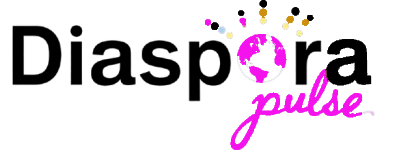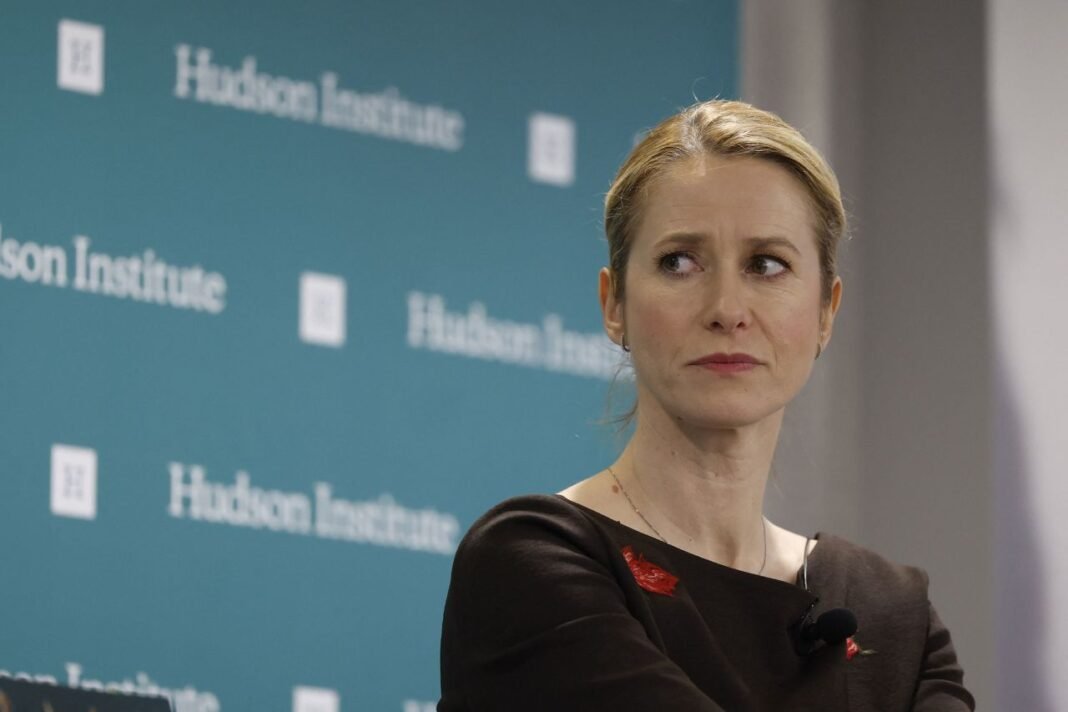The United States maintains a massive $968 billion defense budget that overshadows the European Union’s combined Ukraine support of $457 billion. Recent White House tensions have led European leaders to show unprecedented unity in their support for Ukraine. Representatives from more than a dozen European countries will soon meet at an emergency summit in London to strengthen their position.
European nations now take bold steps toward military independence as uncertainty grows about US support for Ukraine. The Center for European Reform estimates that the EU needs at least five years to achieve full military autonomy from the United States. French President Emmanuel Macron and German leader Friedrich Merz actively promote stronger European defense capabilities. They believe Ukraine war support is vital to maintain regional stability.
European Leaders Condemn Trump’s Treatment of Zelenskyy
“Today, I am here with the College of the European Commission. A free and sovereign Ukraine is not only in the European interest but also in the interest of the entire world.” — Ursula von der Leyen, President of the European Commission
European leaders united to defend Ukraine’s President Volodymyr Zelenskyy after a tense White House meeting. The whole ordeal triggered an unprecedented show of support from European nations that pointed to a radical alteration in global leadership dynamics.
EU Commission Chief Urges Stronger Ukraine Support
European Commission President Ursula von der Leyen spoke directly to Zelenskyy and praised his leadership during the crisis. “Your dignity honors the bravery of the Ukrainian people. Be strong, be brave, be fearless. You are never alone,” she declared. The EU showed its dedication through substantial financial support, with combined aid to Ukraine reaching €135 billion.
EU foreign policy chief Kaja Kallas made a powerful statement about Europe’s role. “The free world needs a new leader,” she said. She then called on Europeans to step up and face this challenge.
French President Reaffirms Russia as Aggressor
French President Emmanuel Macron delivered a clear message about the conflict’s nature from Portugal. “Russia is the aggressor, and Ukraine is the aggressed people,” Macron stated firmly. He also stressed the importance of respecting Ukrainians who continue fighting “for their dignity, their independence, for their children and for the security of Europe”.
Support came from leaders in every corner of Europe:
- German Chancellor Olaf Scholz assured that “Ukraine can rely on Germany — and on Europe”
- Spanish Prime Minister Pedro Sanchez pledged his nation’s steadfast dedication
- Polish Prime Minister Donald Tusk spoke directly to Zelenskyy: “Dear Ukrainian friends, you are not alone”
The EU strengthened its commitment through:
- Implementing wide-ranging sanctions against Russia
- Supporting Ukraine’s EU accession process
- Establishing the International Center for the Prosecution of the Crime of Aggression against Ukraine in The Hague
German conservative leader Friedrich Merz, likely to become the next chancellor, emphasized the need for moral clarity in the conflict. “We must never confuse aggressor and victim in this terrible war,” he stated. His words struck a chord throughout European capitals, as leaders from Finland, the Netherlands, the Czech Republic, and Norway joined in support.
UK Announces Emergency Summit to Rally Support
British Prime Minister Keir Starmer called for a vital London summit to boost European support for Ukraine. European nations need this emergency meeting to create a unified response to recent changes in US foreign policy.
Starmer Proposes New Defense Framework
Starmer showed Britain’s biggest defense spending increase since the Cold War. The UK plans to boost military spending to 2.5% of GDP by 2027 and aims for 3% by 2035. Britain’s commitment includes £7.8 billion in military support since Russia’s invasion. The nation pledges to maintain £3 billion yearly in military aid through 2031.
European Leaders Confirm Attendance
The summit got widespread support from major European powers. Leaders from Germany, Italy, Poland, and the Netherlands will attend. Representatives from Belgium, Croatia, Czech Republic, Estonia, Finland, Ireland, Latvia, Lithuania, Luxembourg, Portugal, Slovenia, and Spain will join the discussions. NATO Secretary General Mark Rutte and European Commission President Ursula von der Leyen plan to participate.
Summit Agenda Focuses on Military Aid
Military support mechanisms stand at the heart of this meeting. The UK showed its dedication through a complete aid package that delivers about 500,000 rounds of ammunition worth over £1 billion. British plans include providing more than 10,000 drones within a year. A UK-Latvia coalition will supply 30,000 new attack and surveillance drones.
The summit will address:
- Boosting Ukraine’s position through increased military support
- Raising economic pressure on Russia
- Creating security guarantees for Ukraine’s future
President Zelenskyy plans to meet with Starmer before the main summit. This meeting highlights Europe’s effort to shape its collective security strategy. European nations now work to build independent defense capabilities while keeping strong transatlantic partnerships intact.
Germany Accelerates Military Independence Plans
“We must build the Armed Forces of Europe so that Europe’s future depends only on Europeans and decisions about Europe are made in Europe” — Volodymyr Zelenskyy, President of Ukraine
Friedrich Merz celebrated his conservative alliance’s victory in Germany’s election by calling for European military independence. “This is five minutes to midnight for Europe,” Merz declared. He stressed the need for quick action to break free from US support.
Merz Calls for European Defense Force
The newly elected chancellor presented plans to build Europe’s defense capabilities through unprecedented measures. Germany has provided €28 billion in military assistance to Ukraine. The country also created a special defense fund of €100 billion to modernize the Bundeswehr. Defense Minister Boris Pistorius announced a detailed reorganization of Germany’s military command. The new structure establishes a single “operational military command” that enables quick decisions.
The restructuring has these key elements:
- A fourth military branch focused on cyber and information warfare
- Simplified command structure that eliminates duplication
- Improved training programs for over 10,000 Ukrainian soldiers
Merz started talks with European leaders about nuclear security arrangements. He focused on learning about partnerships with Britain and France – Europe’s nuclear powers. The chancellor also began discussions to approve €200 billion in special defense spending.
France Backs German Initiative
French President Emmanuel Macron quickly supported Germany’s vision for better European defense capabilities. Both nations signed agreements through the Franco-German Defense and Security Council to strengthen their collective defense. Their partnership aims to:
- Develop shared security objectives and strategies
- Deepen armament cooperation
- Build industrial and defense capabilities
The alliance goes beyond bilateral arrangements. Both countries committed to make the EU Rapid Deployment Capacity operational by 2025. Germany and France acknowledged nuclear deterrence’s vital role in European security. They recognized French strategic nuclear forces’ most important contribution to NATO’s overall security.
Defense Minister Pistorius emphasized that the Bundeswehr must become “war-capable.” This marks a fundamental change in Germany’s traditionally cautious military stance. The transformation shows broader European efforts to build independent defense capabilities as global security dynamics change.
European Nations Pledge Direct Military Support
European nations have substantially increased their military support for Ukraine as new developments unfold. The EU and its member states have mobilized €48.7 billion in military assistance that shows an unprecedented commitment to Ukraine’s defense capabilities.
Poland Doubles Artillery Production
Poland’s state-owned Polish Armaments Group (PGZ) revealed plans to expand its 155mm artillery production capacity. The nation wants to manufacture 100,000 rounds annually within the next 24-36 months. Poland’s contribution to the Czech-led ammunition initiative doubled, which deepens its position as one of Ukraine’s steadfast supporters with approximately AED 11.75 billion in military aid.
Baltic States Increase Defense Spending
Lithuania announced a groundbreaking decision to raise its defense spending to between 5% and 6% of GDP starting in 2026. This historic move makes Lithuania the first NATO nation to reach such ambitious defense targets. Estonia showed its commitment by increasing defense expenditure to 3.2% of GDP in 2024.
Nordic Alliance Expands Training Programs
The Swedish government gave its Armed Forces an extensive framework mandate for Ukrainian military training throughout 2024. This initiative will help train approximately 18,000 Ukrainian personnel by Swedish instructors. The program covers:
- Maritime education in amphibious combat techniques
- Underwater mine clearance operations
- Leadership training for platoon commanders
- Tactical instruction for staff officers
Norway supported this effort with a pledge of 155 billion Norwegian krone to Ukraine for 2023-2030, and 22.5 billion krone specifically for military support in 2025. Spain committed €1 billion annually in military hardware over the next decade.
The European Peace Facility boosted support by creating a dedicated Ukraine Assistance Fund worth €5 billion. The EU finances vital military equipment through this mechanism, including personal protective gear, ammunition, and missiles. The Act in Support of Ammunition Production mobilized €500 million to boost manufacturing capabilities for ground-to-ground artillery ammunition.
European nations have shown remarkable unity by taking concrete steps to support Ukraine’s sovereignty. Their combined military aid of €48.7 billion proves Europe’s strong stance against aggression. The London emergency summit and Germany’s ambitious plans for military independence have changed European defense strategy fundamentally.
Each nation’s strong commitment reflects Europe’s determination clearly. France and Germany now lead this change through improved cooperation between them. Baltic states have raised their defense spending to record levels. Poland has doubled its artillery production capacity. Sweden’s complete training programs show that Europe stands ready to help Ukraine with real action.
European leaders now do more than just make diplomatic statements. They build new frameworks to provide sustained military and financial support. A new Ukraine Assistance Fund worth €5 billion combines with individual nations’ long-term pledges to give continuous aid for Ukraine’s defense needs. This unified European response marks a new era of collective security cooperation that deepens the continent’s commitment to defend its values and interests independently.



